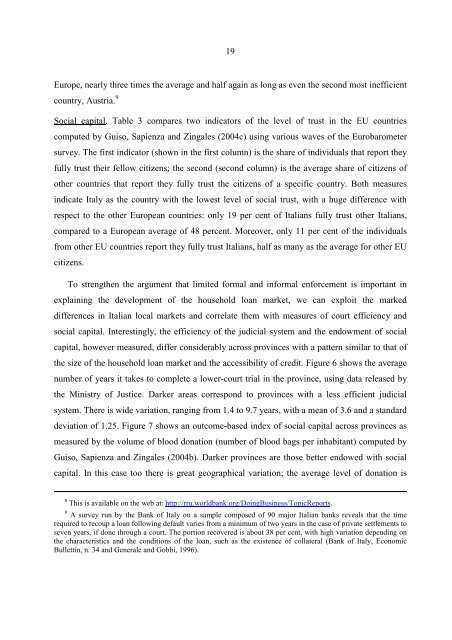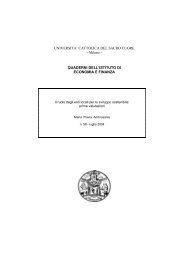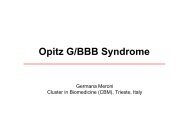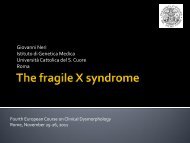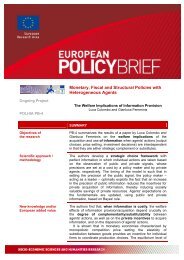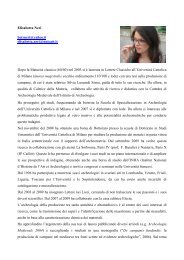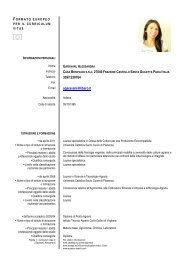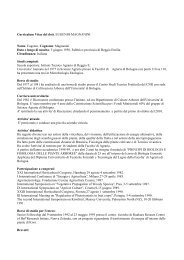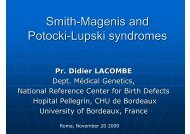REGULATION, FORMAL AND INFORMAL ... - ResearchGate
REGULATION, FORMAL AND INFORMAL ... - ResearchGate
REGULATION, FORMAL AND INFORMAL ... - ResearchGate
Create successful ePaper yourself
Turn your PDF publications into a flip-book with our unique Google optimized e-Paper software.
19<br />
Europe, nearly three times the average and half again as long as even the second most inefficient<br />
country, Austria. 9<br />
Social capital. Table 3 compares two indicators of the level of trust in the EU countries<br />
computed by Guiso, Sapienza and Zingales (2004c) using various waves of the Eurobarometer<br />
survey. The first indicator (shown in the first column) is the share of individuals that report they<br />
fully trust their fellow citizens; the second (second column) is the average share of citizens of<br />
other countries that report they fully trust the citizens of a specific country. Both measures<br />
indicate Italy as the country with the lowest level of social trust, with a huge difference with<br />
respect to the other European countries: only 19 per cent of Italians fully trust other Italians,<br />
compared to a European average of 48 percent. Moreover, only 11 per cent of the individuals<br />
from other EU countries report they fully trust Italians, half as many as the average for other EU<br />
citizens.<br />
To strengthen the argument that limited formal and informal enforcement is important in<br />
explaining the development of the household loan market, we can exploit the marked<br />
differences in Italian local markets and correlate them with measures of court efficiency and<br />
social capital. Interestingly, the efficiency of the judicial system and the endowment of social<br />
capital, however measured, differ considerably across provinces with a pattern similar to that of<br />
the size of the household loan market and the accessibility of credit. Figure 6 shows the average<br />
number of years it takes to complete a lower-court trial in the province, using data released by<br />
the Ministry of Justice. Darker areas correspond to provinces with a less efficient judicial<br />
system. There is wide variation, ranging from 1.4 to 9.7 years, with a mean of 3.6 and a standard<br />
deviation of 1.25. Figure 7 shows an outcome-based index of social capital across provinces as<br />
measured by the volume of blood donation (number of blood bags per inhabitant) computed by<br />
Guiso, Sapienza and Zingales (2004b). Darker provinces are those better endowed with social<br />
capital. In this case too there is great geographical variation; the average level of donation is<br />
8<br />
This is available on the web at: http://rru.worldbank.org/DoingBusiness/TopicReports.<br />
9<br />
A survey run by the Bank of Italy on a sample composed of 90 major Italian banks reveals that the time<br />
required to recoup a loan following default varies from a minimum of two years in the case of private settlements to<br />
seven years, if done through a court. The portion recovered is about 38 per cent, with high variation depending on<br />
the characteristics and the conditions of the loan, such as the existence of collateral (Bank of Italy, Economic<br />
Bullettin, n. 34 and Generale and Gobbi, 1996).


